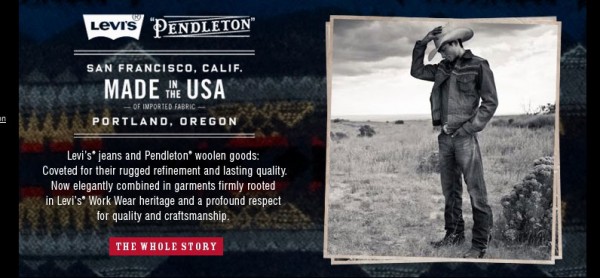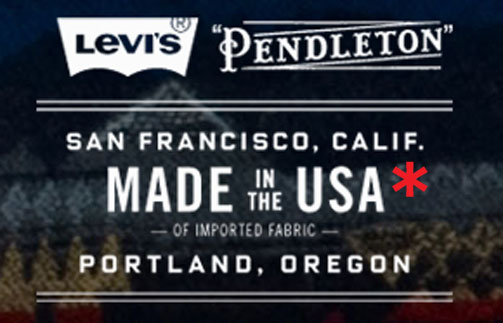
The Spark: When others batten down hatches, hoist up the sails
For G4 Kegs, the spark was becoming a new kind of industry leader — one that prioritized meaningful partnerships in a time when the brewing industry was aflame.

Two of my business passions are manufacturing and brand authenticity. I believe in making things right, and being honest, credible, and sincere in marketing. As a native Oregonian, and Portland marketer, it's a subject that hits close to home.
Which is why a recent article in Oregon Business magazine caught my eye…
Written by Oregon Business associate business writer Jacq Lacy, Pendelton Partners with Levi's highlights the relationship between two venerable US brands: Levi's and Pendelton Woolen Mills. Lacy writes about a new line of trucker jackets, “intended for buyers of American-made products.” The article explains how the jacket fabric wool is woven in Oregon, shipped to Mexico for sewing, then sent to Asia for final “assembly” by Levi’s workers.

The theme of the marketing campaign is “We are all workers.” It highlights the new jackets in use by Navajo Cowboys/Cowgirls in New Mexico. As explained by Oregon Business Magazine, the strategy (incredibly) is:
“...that a company partners with an iconic American-made brand, and thus becomes American-made by association.”
Before I tear apart how bad this idea is, let’s look at a few details:

I could go on and on about the problems with globalism, free trade, or poor working conditions in third-world factories. However, it appears that Levi's is actually a reasonably responsible citizen when it comes to overseas manufacturing. And, I’m guessing that the actual products are well-designed and well-made. I like the use of the “worker” theme too – it fits with the legacy of both companies.
The problem here is that the marketing for this product is simply inauthentic. Using Navajo cowboys and Pendleton wool to create an “American Made association” is disingenuous at best; at worst, it’s a cynical manipulation of customers, Native Americans, and the media.
Rather than pulling the wool over our eyes, these companies could turn this into a success through one of two strategies:
It will be interesting to see if this campaign gains traction (and if others cringe at the hypocrisy). I welcome your thoughts in the comments below.
PS For more reading on the state of apparel manufacturing, check out Kelsey Timmerman's blog and book, "Where am I Wearing?"
Get insights like this straight to your inbox.